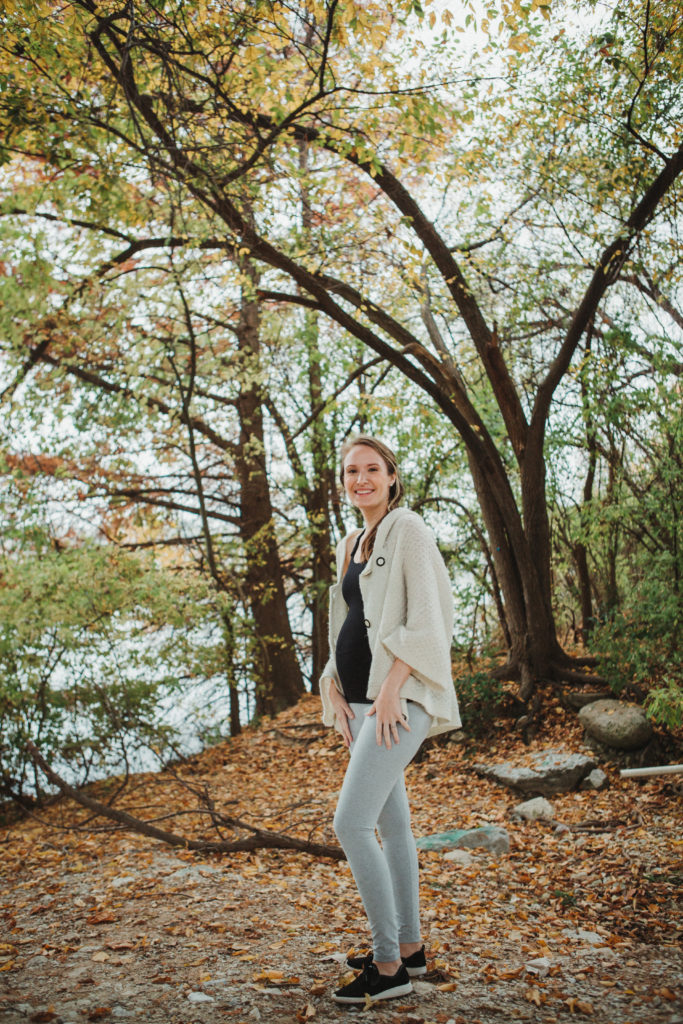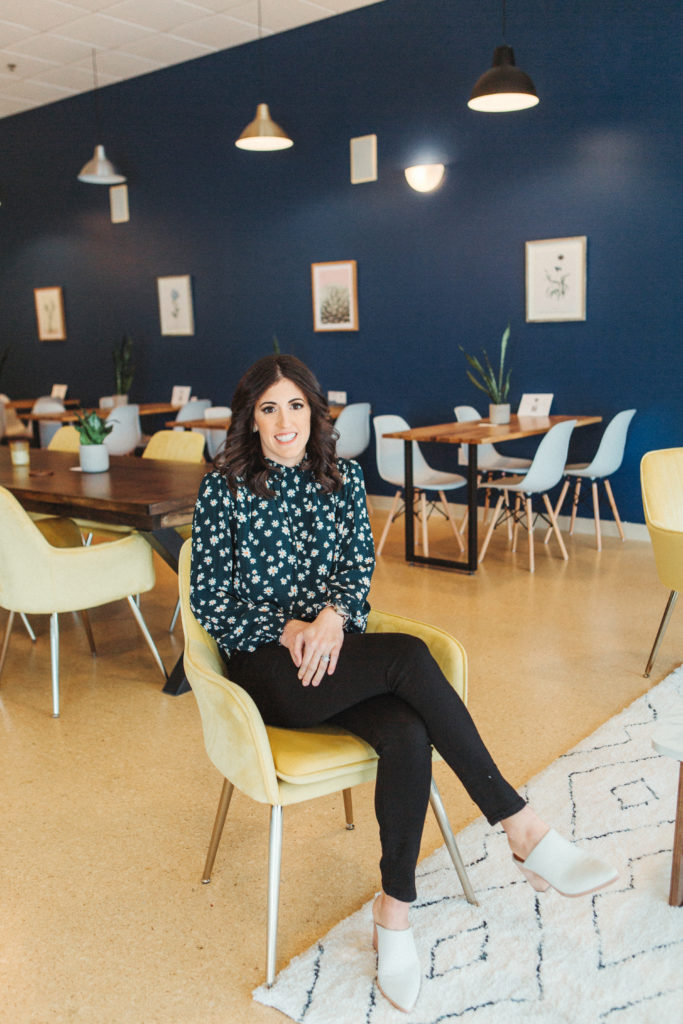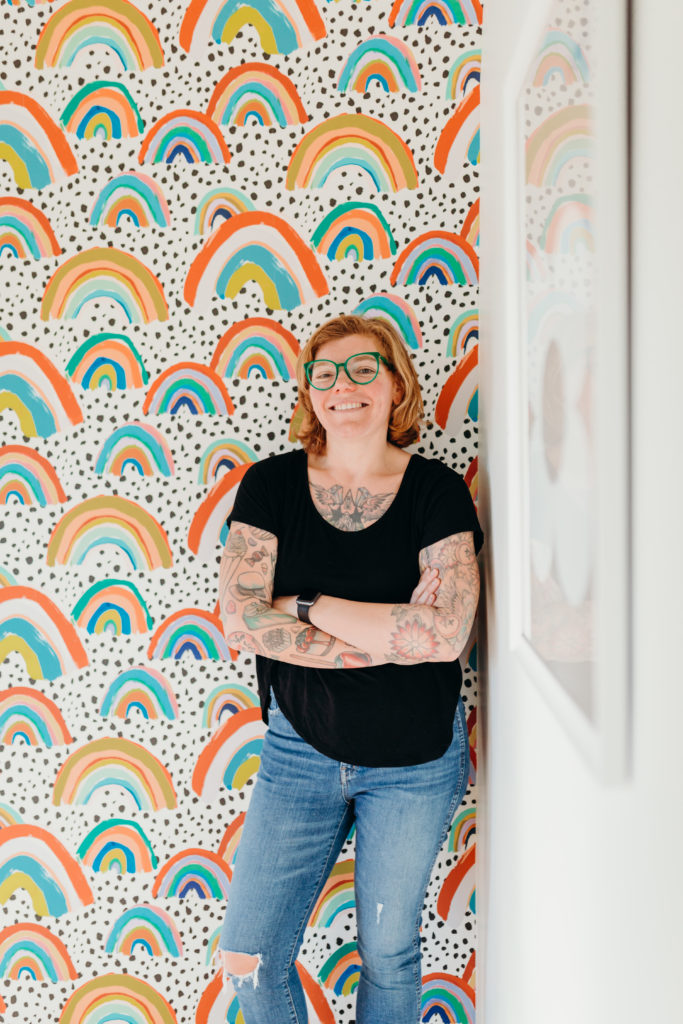Three ambitious and trailblazing Central Texas mompreneurs balance the duties of raising children while also raising successful, innovative—and entirely family-friendly—businesses.
By Brianna Caleri, Photos by Taylor Prinsen
Moms in 2020 know they don’t have to choose between work and family. But that doesn’t make it any easier to leave loved ones at home to pursue the hectic life of a startup. One survey conducted by Womenable and American Express Open found 80 percent of moms in the U.S. who start a business do so after their first child is born. Forty-four percent said they sometimes feel guilty about their entrepreneurship. Balancing raising a brand and kids simultaneously may mean admitting these acts are not so different.
It seems moms are particularly well-suited to start businesses. Moms have to be resourceful, finding solutions to unglamorous problems like managing reproductive health while pregnant, getting a moment of peace and quiet on the phone or finding an outfit that matches in an unsorted laundry heap. They have to respond to issues as they arise and accept there are some problems they just can’t see coming. They have to be patient but know when to draw firm lines. They need to protect their own needs while providing for others.
Most importantly, moms have learned they need to stick together. These three moms founded a maternity and postpartum athletic-wear company, a family co-working space and a children’s clothing brand, all with a focus on supporting parents so they can support each other.
GROWING TOGETHER: ANOOK ATHLETICS

We’ve all heard of mom jeans, but where can Mom get a good pair of mid-rise athletic leggings she can wear through her entire pregnancy and postpartum duration? The answer comes not in the form of magic but from a performance fabric known as power mesh.
Allie Lindenmuth, a prenatal yoga teacher, thought being pregnant would be easy. She already knew how to take care of a pregnant body, thanks to her chosen occupation. But the transition was harder than she thought. Maternity wear should have been the least of her worries, but she was still teaching 16 classes a week and wanted to be comfortable while looking and feeling like herself. She bought larger sizes in her favorite nonmaternity clothing brands, but knowing that kind of investment isn’t worth it, she had to find a better way.
“I wanted it to be something where you could wear it forever,” Lindenmuth says, “and it just happened to grow with you.”
With that idea in mind, Anook Athletics was born. A high-end activewear company that makes durable clothes than can stretch from week four of pregnancy to week 40 and shrink back down during postpartum, Anook Athletics blends innovation with fashion and comfort. With a name derived from a word meaning “grace,” Anook Athletics provides moms with sensible yet attractive clothing that enables “all women to feel empowered to support their bodies physically, mentally and spiritually.” The mom-driven team Lindenmuth gathered with athletic-wear backgrounds from throughout the United States has built smart clothes that address more than just getting bigger.
To make room for a pregnant belly, Anook garments stretch dramatically, but the power mesh also provides compression to lift. Keeping in mind the extra fluid in a pregnant woman’s body makes her more susceptible to yeast infections and UTIs, the pants feature wide gussets (the diamond-shaped piece of fabric in the crotch) for ventilation, as well as an antimicrobial lining. The nursing bras and tanks take style into account, with slimmed-down straps and clips concealed under a tiny fabric sleeve so the wearer doesn’t have to advertise she’s lactating.
“We want our company to work with the female body,” Lindenmuth explains, “as opposed to having women try to fit into our product. We want to fit around them.”
She extends the same attitude to her life. Now pregnant with her second child, Lindenmuth isn’t trying to fit into her old yoga practice. She uses blocks to support her body and makes sure she doesn’t sink too far into deep stretches. Nor is she pushing too hard to release her second Anook Athletics collection. Worried about launching it two weeks after her due date in March, she decided to move the release to June and let the team relax a little.
As a new businesswoman, Lindenmuth wonders who is applying such pressure anyway.
“Besides us?” she asks.
ALLIE LINDENMUTH: ON MOMPRENEURSHIP
On how her child sees her business: “He’s really excited. He’s too young to understand what we’re creating. But I think he’s proud. I think he can see that Mommy’s doing something different.”
On where she gets support: “My husband is the one who really pushed this. I [also] have a little group of mom entrepreneurs, which is honestly really hard to find. They’ve been really supportive in bouncing ideas off of each other.”
On who will benefit from her legacy: “I hope both of [my children] benefit in the sense that they know their mommy was trying to do something that didn’t exist…and hopefully that empowers them to not only support themselves, but support women.”
A COMMUNITY OF SIMPLIFIED PARENTHOOD: POPPY

One Austin mom at Poppy, a family-centered co-working space, visited during the holiday season simply for a little peace and quiet while doing her Christmas shopping. Some parents come in to knock out work tasks while their kids are engaged in the playroom and some come in without their kids to enjoy a glass of wine together. That’s what Poppy is really for: providing space for moms to do important work, whether for their paying jobs or for the self-care necessary to keep parents thriving.
Mandee Klenk, a pediatric occupational therapist who traveled often, started realizing how expensive her nanny was and how inconvenient it was to have a family in so many different places throughout the day. Her husband had used co-working spaces when working with startups but saw they weren’t kid-friendly. The couple decided to open a co-working space for families that would provide an enriching environment for children. That way, adults could get their own business done without, as Klenk calls it, “parent guilt.” Klenk even hired her trusted sitter, Nerrlie Jaramillo, as Poppy’s in-house child-development specialist.
It turns out, Klenk realized, there’s a lot that being a mom could teach her about business. She learned to multitask, to plan her schedule minute by minute and to adapt when that plan inevitably goes awry. Kids and business both test her resiliency, but they demand two very different kinds of patience. Sometimes she has to send her kids away so she can run the space, giving herself the same consideration she would give any one of her clients who rely on her.
“What I’m like as a parent here versus a parent at home is completely different,” Klenk says, “but it works for us on both sides.”
Keeping those situational needs in mind, Klenk meets with parents entering Poppy in order to set goals for their children and plan out mindfully spent time. For families working at home, going to the dentist, traveling by plane or spending time in any other mind-numbing place for a child, Klenk recommends being prepared with age-appropriate activities that provide sensory feedback or develop motor skills and problem-solving.
It’s equally important parents treat themselves to some enrichment too. Klenk emphasizes that setting aside personal time takes self-discipline and raising kids really does take a village. Whether that village is family, friends, specialists or co-workers, those in a healthy community ask each other for help. That community raises happy and confident kids.
MANDEE KLENK: ON MOMPRENEURSHIP
On how her children see her business: “They went through phases like, ‘This is boring.’ But they really came to believe and love it. They often say, ‘Why can’t we just live at Poppy? Can we sleep at Poppy?’ ”
On where she gets support: “My family, for sure, our community, my friends. It’s kind of funny; you figure out who’s your true friend when you go through the hard time. My friends are members here now and we can relate here.”
On who will benefit from her legacy: “We’re just going to start out small now to sup- port the Austin community, give back a little bit. We hope companies catch on to seeing that parents can be so much more productive when they’re in the right mindset.”
KID STUFF: JUNE & JANUARY

Amy Richardson is raising a public-relations superstar. During the Halloween season, she took her 8-year-old son, Eli, to a trunk-or-treat event where they set up a booth for June & January, her children’s clothing brand focused on joyful basics. But Eli didn’t want to collect candy. He wanted to stay at the booth and present the brand. He gives tours at the office and even helped create a kids gift guide for the company. Richardson’s 4-year-old daughter is happier just to enjoy the fruits of her family’s labor and experiences a visceral need to pick her own clothes every day.
This kind of brand loyalty is essential to the booming cult success of June & January. Parents love the bold colors and patterns, which all go together for easy outfit crafting in a rush or by less-fashionable family members. Plus, much of the clothing is gender-neutral, unencumbered by weird slogans and graphics. And kids love the tagless apparel because it’s comfortable.
Richardson describes the products’ accessibility as a series of “happy accidents” but says the company is now intentional about being inclusive in its marketing. Parents say their sensory-sensitive children won’t wear any other pants or that the bonnets work great with cochlear implants and the shoes fit with kids’ orthotics. Richardson made it a goal to listen to feedback and learn how to best represent an underserved customer base that doesn’t take the gesture for granted. She also sees value in exposing neurotypical kids to more diversity, so everyone wins.
“If you want all customers to feel comfortable in your clothes, you need to represent all kinds of different customers,” Richardson says.
All this accessibility did need to be reeled in as the company grew. Like any brand with a massive social-media following, June & January suffered very public criticism. Richardson started finding it difficult to tell who wanted to be friends and who wanted insider privileges.
Then disaster struck. One day while driving with her children, she was shot in the leg by a stray bullet. The likely random accident prompted her to think more about safety and separating business and her personal life. (She fully recovered from the incident.)
Still, Richardson deeply believes in the community of moms she’s accumulated and wants to continue a close relationship by bringing the community offline. She hosts fundraisers and social events designed to bring moms together in relatable and fun ways, sometimes as simple as enjoying pies and margaritas.
Having a child, Richardson explains, “totally changes who you feel like you are as a person.” She wants to make sure moms don’t feel alone in that experience.
AMY RICHARDSON: ON MOMPRENEURSHIP
On how her children see her business: “He’ll ask me, ‘Are you famous?’ He knows that the business kind of started because of him. Anytime we do an event, he asks, ‘Are they going to ask me for my autograph?’ ”
On where she gets support: “I was working a regular 9-to-5 job for the first year, and when I came to [my husband] and was like, ‘Hey, I think I’m going to quit my very well-paying job to run this baby brand full time,’ he was super supportive.”
On who will benefit from her legacy: “We try to be really diverse and representative in our marketing. I think that’s something that is really great for kids now, to see kids that look like them or kids that don’t look like them as sort of a learning experience.”

